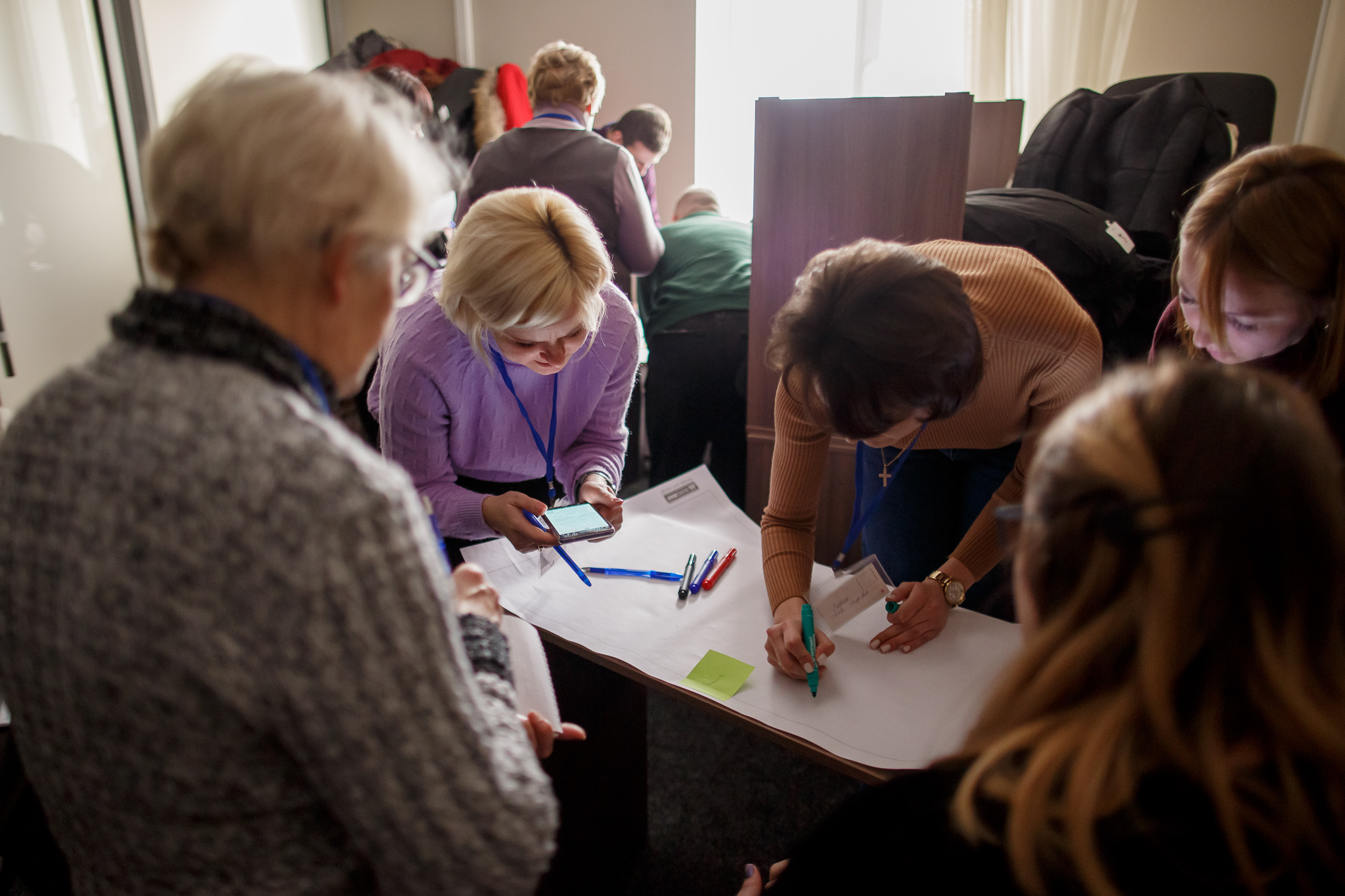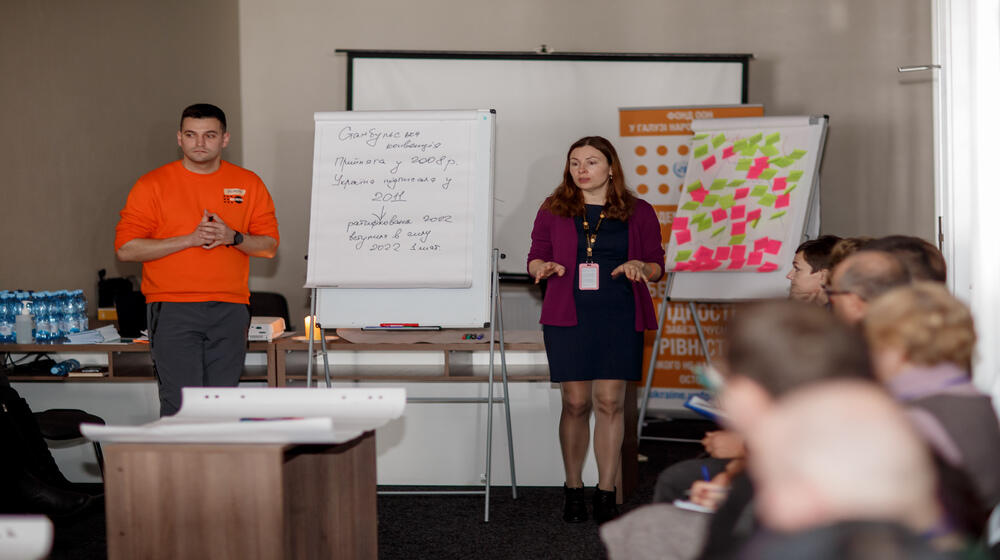It is not enough just to have services available to help GBV survivors. An important component is also the training of specialists, in particular social workers, psychologists, police officers, and workers of specialized services for survivors from small communities, so that the services bring benefits and positive changes.
In December, UNFPA conducted trainings to improve the qualifications of service providers for GBV survivors in partnership with oblast administrations. In particular, psychologists, social workers, police officers and workers of specialized services for survivors from small communities have received training. In total, 14 trainings were held for almost 400 specialists in 12 regions of Ukraine in December alone.

"Given the difficult situation in Sumy region caused by the war, when 19 territorial communities are shelled by Russia, it is especially important to continue providing social and psychological services to the residents of the communities who survived the violence. Therefore, we hope for close cooperation with the UN Population Fund in the areas of protection GBV survivors, in the organization of the high-quality social, psychological and other services system, ensuring the functioning of specialized support services for survivors, as well as the training of specialists whose competence includes issues of preventing and countering domestic violence and gender-based violence," said the deputy head Oleg Koval of the Sumy Regional State Administration.
"Systematic trainings give an opportunity to actualize the problems of the affected persons for service providers, to deepen their knowledge of human rights protection, and to use skills and knowledge in their activities," said Nataliya Naichuk, head of the Main Department of the National Social Service in Ternopil region.

"The increase in the population as a result of internal migration due to the full-scale invasion of the Russian Federation, and joint living of families contribute to the increase in cases of domestic violence, gender-based violence. The population is faced with a decrease in the scope of social services, or interruptions and/or their termination. Communities need increasing the capacity and efficiency of social services in order to reduce the number of GBV survivors, as well as to overcome stereotypes regarding the social role of women," said Yuliya Shigaryova, head of the National Social Service Department in the Rivne region.
This year, trainings for GBV service providers will continue.
The trainings were conducted within the humanitarian response program of UNFPA, the United Nations Population Fund, with the support of CERF.


